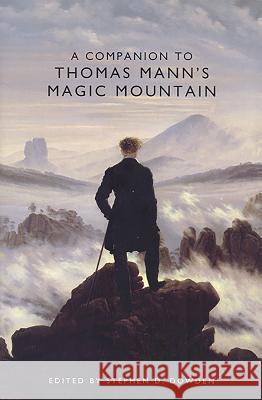A Companion to Thomas Mann's Magic Mountain » książka
A Companion to Thomas Mann's Magic Mountain
ISBN-13: 9781571132482 / Angielski / Miękka / 2002 / 270 str.
Thomas Mann was the first writer since Goethe to attract a large international audience to stories written in German, bringing German fiction into the mainstream of European literature. His second major work, The Magic Mountain (1924), explores the heady intellectual culture of the chaotic and broken Germany that emerged from the First World War, and, along with the earlier Buddenbrooks, earned him a Nobel Prize for literature in 1929. Mann himself considered The Magic Mountain to be his greatest novel, and few in his own day doubted the preeminence of this modernist classic; however, many have argued that the age of literary modernism has passed. If this is so, how might we best understand Mann's masterpiece now? Topics covered in this volume, which aims to provide both a survey of and new research into important aspects of the work, include Mann's comic vision, his homosexuality, his fraught attitude toward Jews, the place of his novel in the landscape of postmodern life, the theme of solitude, music in the novel, and technology. Stephen D. Dowden is Professor of German at Brandeis University. Contributors: David Blumberg, Michael Brenner, Stephen Dowden, Edward Engelberg, Ulker Gokberk, Eugene Goodheart, Joseph P. Lawrence, Karla Schultz, Susan Sontag, Kenneth Weisinger. Stephen D. Dowden is Professor of German at Brandeis University.











